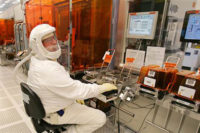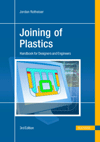Several months ago we asked whether there are too few engineers for American manufacturing, or whether there are too many. Not surprisingly, opinions differed
Several months ago we asked whether there are too few engineers for American manufacturing, or whether there are too many. It’s a controversial subject and we’re gratified that several readers took the time to offer their own views on the issue. Not surprisingly, opinions differed.
Thankfully, says one responding reader, neither he nor any engineer friends are currently out of work. So far as he knows, they’ve all been able to find a job when the need arose. At the same time, most firms he knows closely seem to think they could use a few more good engineers from time to time.
Another reader says there are many good jobs available for experienced engineers right now, but some might require relocation. He also believes that the United States has a shortage of good engineers with hands-on experience, especially manufacturing and packaging engineers.
Adding complexity to an already contentious situation, engineering jobs are becoming the car makers new export, says business reporter Norihiko Shirouzu. Car makers have been slashing expenses by building assembly plants in low-cost countries for years. Writing recently inThe Wall Street Journal, Shirouzu says high-skill design and engineering operations, which have long remained in industrialized countries such as the United States, Germany and Japan, are now starting to follow the assembly plants.
Nissan has been aggressive among car makers in moving engineering operations to the developing world, says Shirouzu. In an interview, Carlos Ghosn, chief executive of both Nissan and its alliance partner, Renault SA, said, “If you have an engineer in Hanoi as compared to Japan, there is a lot of cost savings you can make.” No surprise there, but it is hard to believe when Ghosn says moving development work to low-cost countries won’t result in the loss of engineering jobs in places like Japan or the United States.
However, exporting engineering jobs is a risky proposition. For example, Shirouzu says among the big challenges facing Nissan is a lack of experience among the new college graduates whom the Japanese car maker is recruiting in Vietnam and elsewhere. Advanced CAD tools have helped compensate for the lack of hands-on experience among young engineers, but over-reliance on virtual engineering tools has led to quality problems in recent years.
No surprise there either. The same reader who says we have a shortage of manufacturing engineers with hands-on experience also points out the scarcity of cooperative internship programs that provide-in addition to theory-the hands-on experience necessary to prepare the next generation of engineers for tomorrow’s challenges.
Another reader, nearing retirement, might be as close to the answer as we’re likely to get. His concerns are that we don’t have enough younger engineers with hands-on experience and-most importantly-a heart-and-soul passion for engineering. I think he’s on to something. We’ll always have enough of the ordinary. But we’ll never have enough Bill Hewletts and David Packards.
Get our new eMagazine delivered to your inbox every month.
Stay in the know on the latest assembly trends.
SUBSCRIBE TODAY!Copyright ©2024. All Rights Reserved BNP Media.
Design, CMS, Hosting & Web Development :: ePublishing



